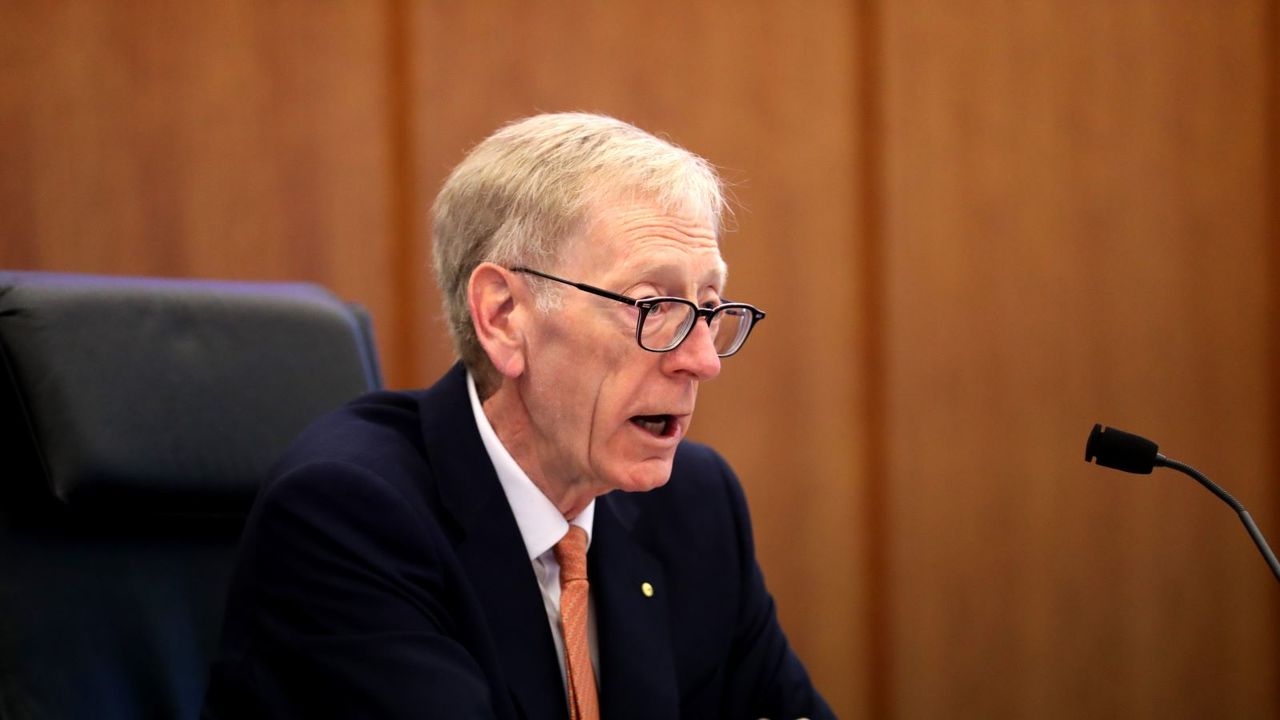‘Interest rates are going to go up’: Mortgage broker fury at banking inquiry’s commission crackdown
Borrowers could be forced to pay higher rates and upfront fees after a “very, very bad” recommendation by the banking royal commission.

The mortgage broker industry has reacted with fury to the release of the banking inquiry’s final report, warning that a sweeping ban on commissions could “ruin” many small businesses and lead to borrowers paying higher interest rates.
From mid-next year, banks will be banned from paying mortgage brokers so-called “trail commissions” — described witheringly by Commissioner Kenneth Hayne QC as “money for nothing” — on new loans.
SWEEPING CHANGES: Read the key points here
‘SCATHING’ REPORT: How the main players reacted
ANALYSIS: The Big Banks’ most telling sin
Trail commissions are ongoing payments made by the bank to the broker for the entire life of the loan. The bigger the loan, the bigger the trail commissions paid, meaning often brokers aren’t acting in the best interest of the customer.
“Why should a broker, whose work is complete when the loan is arranged, continue to benefit from the loan for years to come?” Mr Hayne said in his report.
“It cannot be that they are deferred payment of fees earned earlier when the amount paid as trail depends upon the length of the life of the loan. And it cannot be that they are a fee for providing continuing services given there is no obligation for the broker to do so and no evidence of it being done.”
Instead, the commission has recommended the borrower, not the lender, should pay the mortgage broker an upfront fee, effectively turning the business model of the $2.1 billion industry on its head. Just under 60 per cent of all mortgages come through the country’s 20,000 brokers, who settle around 30,000 mortgages every month.
“It’s a very, very bad outcome that has the risk of huge unintended consequences for home loan borrowers,” said Finance Brokers Association managing director Peter White. “Potentially interest rates are going to go up to compensate for the increased cost.”
Mr White said rates could “go up by 10 basis points, 20 basis points, it’s really hard to say at this point”.
“The borrower doesn’t win from any of this, all it’s done is increase the cost of someone getting a house,” he said.
Campaign and volume-based commissions and payments will also be banned from next year, and the value of upfront commissions will be linked to the amount drawn-down by borrowers and not the loan amount. The government stopped short of endorsing the commission’s recommendation to ban upfront commissions altogether.
“I’m concerned the royal commission hasn’t done enough due diligence on their position,” Mr White said. “We seem to have this tainted view that a commission is an evil thing. All remuneration is conflicted in one way or another, all you can do is take measures to make it more transparent.”
Mr White said there was “going to be a lot of anger” from the mortgage broker community. “They’re all small business operators, these people could wind up with their business being ruined,” he said, adding it was simply putting more power in the hands of the banks.
While the announced changes will only impact new loans, Mr White said “depending on how broad brush this goes in the future, the banks have a nasty habit of just putting up interest rates retrospectively”. He likened the mortgage broker industry to the “foot on the tiger’s head”.
“Take it off, the bastard’s going to want to bite you,” he said.
Property Council chief executive Ken Morrison urged caution from the government in implementing the recommendations. “The banking sector is the lifeblood of the economy, you need credit in the system for business to grow, for people to purchase housing,” he said.
“So it’s important that while policymakers are focused on what they need to do to fix the banks that we don’t break the economy. On first blush the government’s response seems to be balanced. In terms of the changes to the mortgage broker sector, those will need to be done with care, we want to ensure people can still access loans as the system changes to a new remuneration model.”
Mr Morrison said there was a risk to the economy if the process wasn’t handled properly. “The risk is that people can’t get access to credit, can’t borrow to purchase housing, projects can’t access credit to get off the ground and we see a slowing down of housing construction which is very critical to the overall economy,” he said.
“I think the government recognises that, that’s why they’re taking their time.”
In his report, Mr Hayne partly blamed the mortgage broker industry’s reliance on commissions to the large number of unaffordable loans written, often using controversial HEM benchmark to severely underestimate borrower’s living expenses.
“The fact that the broker is paid only if a loan application succeeds stands as an obvious motive for that kind of conduct,” he said.
“It is in the broker’s financial interests to have the lender approve the loan. And, as both the NAB Introducer home loans and the Aussie Home Loans broker misconduct case studies showed, payments by banks to intermediaries have induced some to engage in other forms of dishonest conduct.”
Mr Hayne said that even when the commission was disclosed to the borrower, the “immediate sting” was not felt because it was paid by the bank to the broker. “On reflection, the borrower may recognise that the cost of commission, like all other costs of the lender, will affect the price that is charged for the loan,” he said.
“But there is not that immediate and direct connection that would be observed if the fees charged by the broker for the work done were charged to the borrower, either directly or by paying the fees out of the amount borrowed.

Originally published as ‘Interest rates are going to go up’: Mortgage broker fury at banking inquiry’s commission crackdown



